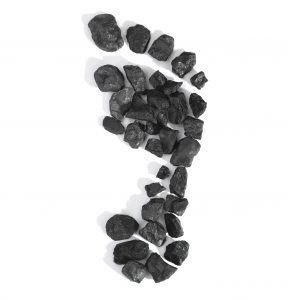CBAM! BAM! BAM! A climate game-changer?
 There is always an excuse not to act on climate change. One of the most pervasive has been the idea that domestic measures, such as a carbon tax, will simply push high carbon industries overseas, a phenomenon known as carbon leakage. This in turn plays into the “but China’s building a coal fired power station every 20 minutes” meme. While much of this argument is overstated, there is not denying that carbon leakage is a thing.
There is always an excuse not to act on climate change. One of the most pervasive has been the idea that domestic measures, such as a carbon tax, will simply push high carbon industries overseas, a phenomenon known as carbon leakage. This in turn plays into the “but China’s building a coal fired power station every 20 minutes” meme. While much of this argument is overstated, there is not denying that carbon leakage is a thing.
It was only 18 months ago that I read Dieter Helm’s Net Zero book where he called for a domestic carbon tax plus a carbon tax on imports. At the time, I thought this was revolutionary thinking, but it turns out the EU had quietly been debating a Carbon Border Adjustment Mechanism (CBAM) since before 2021 – presumably the book production process and the EU technocracy passed in the night. The EU CBAM came into force this autumn and will start charging in 2026.
Yesterday, the UK Government announced its intention to wager a CBAM of its own, starting 2027. There are also indications the US will follow suit. The EU plus UK represents about 20% of global economic activity, if the US is added in, this bumps up to 45%, compared to China and India coming in at 21% between them. To me, this is the significant bit.
While most of the focus has been CBAM on stopping carbon leakage and, more importantly, the fear of carbon leakage, I think the change could be much more profound. Rapidly industrialising nations, aka the BRICS, reply on exports, and CBAM is a carbon tax on those exports. So this makes decarbonisation an economic priority; a swift counter to their current industrialise-at-all-costs mindset.
Personally, I had been hoping/praying that big brands adopting Net Zero targets including their supply chain (aka Scope 3 emissions) would provide this decarbonisation motive, but CBAM is a much more in your face intervention – one that politicians as well as industrialists will comprehend. And we shouldn’t underestimate the power of such tariffs – in the UK, the Carbon Floor Tax quietly killed off coal power, providing much of the country’s decarbonisation success.
It’s rare that we get genuinely good news on decarbonisation, but I think CBAM will turn out to be a game changer.

